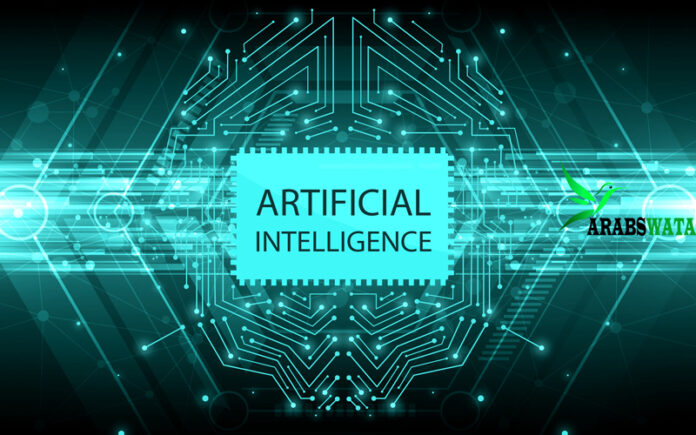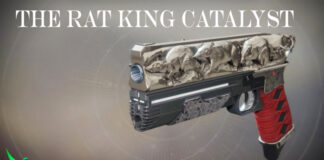How Artificial Intelligence works is undoubtedly the future of HR. Technology is evolving with rapid-pace that ease human functioning in Human Resources and automates the mundane and monotonous tasks.
Artificial Intelligence and Machine Learning are no longer buzzwords; usage of AI and ML apps is increasing day by day to an appreciable level. McKinsey’s recent study revealed that AI’s impact on the global economy is huge and will generate $13 trillion by 2030.
AI reduces human errors and automates tedious tasks. Along with the recruitment and termination, there are lots of other core human resource tasks that affect organizations’ profitability and prestige in the market. Today, artificial intelligence is uniquely reviving HR professionals no one has experienced before.

Image: (Source)
The above chart shows that the adoption of AI-based HR technology can reap long-term benefits and after marketing, usage of AI is gradually increasing in the human resource sector. Some of the organizations are already being witnessed while few of them implement AI to expand their reach. AI smartly optimizes bulk data, creating streamlined HR procedures and gives output without any bias that eventually improves the onboarding process.
It is clear that AI has already made its way in HR practices and how HR professionals are influenced by AI technology.
Table of Contents
# Unbiased Decision Making
As a human being, it is difficult to behave neutrally all the time. Whether it is personal life or professional, we are usually attracted by looks, characteristics, merit, cast, etc. leading us to make biased decisions. In the same way, AI in HR practices reduces the number of biased decisions and helps the organization make decisions based on performance and candidates’ other abilities.
How Artificial intelligence works the recruitment process, performance appraisals, job evaluation process biased free. It represents factual information about an employee based on real data gathered rather than assumptions and potential prejudice.
Read More: Call center monitoring
According to IBM, it was found that 65% of the CEOs believed that usage of AI could drive major changes in human resources. Cognitive engines and How Artificial Intelligence works in HR Practice demonstrated their day-to-day decisions easy at the workplace. Cognitive engines automate all the daily tasks such as leave requests, team training, the onboarding process with ease and enable the HR manager to focus on other core objectives.
Thus, AI in HR practices allows organizations to develop and maintain a more effective and strong relationship with employees that is based on actual work performance and code of conduct.
# Talent acquisition
When a single position attracts thousands of applicants, how HR managers handle all the data quickly comes with thousands of applications. Going through all the applications without any error, it takes time, and you may not conclude.
Moreover, it is also important that no data should be missed while evaluating CVs. But AI in Hr practices can analyze bulk data smartly and shortlist the best candidates for the appropriate position.

Image:( Source)
The above survey shows that the recruitment and hiring process usage is about 49% because AI-powered systems analyze candidates’ profiles smartly and collect data based on their abilities. 52% of recruiters stated that screening candidates from a thousand applications is the hardest part of recruitment. But the AI-enabled program comes with smart solutions and helps HR professionals to sort and filter applications based on skills and experience.
Recruiters can use AI to handle other core tasks, such as labor market analysis, skill matching, bias detection, and many more. AI enables HR managers to make decisions without any bias.
Besides, with the help of advanced and dynamic FactoHR – HR Software, executives can use AI-powered chatbots to communicate with candidates before commencing the interview process and helps them to answer some common questions.
# Employee Training
Artificial Intelligence in HR Practice helps professionals to develop new skills for a better future. Based on the candidate’s current performance review, HR managers can set future plans and train them for a certain role.
For instance, if an employee wants to become a senior back-end developer, he/she needs a certain skill set. Here AI can help them to identify how much room for improvement and track the progress. AI also suggests some smart programs that enhance employee learning ability. (just like Spotify recommends songs).
AI in Hr practices helps managers evaluate the staff’s performance and provide them training. With smart AI tools, the skill gap can be easily bridged, and these training programs train employees to perform better and give a better learning experience.
# Employee Retention
More than 55% of organizations are experiencing employee retention problems. AI can help you fix this issue and stop them from leaving your company. Here AI tools can suggest the “troublesome” areas that prevent an employee from leaving your organization and also prepares you to start hunting for that position.
Whether it is about onboarding, training, employee engagement, or benefit assessments, AI can help you everywhere and makes complicated work much easier. AI can also detect the possibilities of employees leaving the company by checking details related to salary, experience, performance, etc.
Employee retention is the major problem for many organizations, but implementing AI in HR practices would help them to a great extent.
Revealing Statistics How AI Transforming HR Functions
According to Josh Bersin, AI is one of the fastest-growing technologies used by HR professionals to create a better workplace. Artificial technology is a powerful technology that helps us to solve real-life problems by giving smart solutions. It is the fact that Ai-driven technology can perform all the HR-related tasks with ease and frees up managers to focus on other essential tasks.
Mundane tasks such as shortlisting candidates, interviewing candidates, and finally recruiting them, etc., will be easily done with the help of AI. This shall permit HR managers to focus on more productive work. However, AI would not completely replace HR professionals.
Check out the below-mentioned stats that reveal how HR managers feel about AI’s usage in human resources.
- 95% of the senior HR professionals believe AI has the potential to enhance the recruitment process.
- 14% of HR managers are already experiencing AI in their regular work.
- Moreover, 55% of the managers predict that AI will be an important part of HR in the next five years.
- 100% of candidate sourcing and matching processes will be automated.
- 35% of managers say not automating manual processes has led to major costs.
- 5% of managers say that robots will steal their jobs in the coming years.
The above figures clearly show that the practice of AI in the human resource field affects its operations and helps them to create a modern workforce for the organization.
Last Words
Summing up, AI in HR is extremely useful, especially when large volumes of data have to be processed at the time. It automates the process, speeds up the tasks, and provides valuable insights quickly. No doubt, due to AI technology, human resources now find it easier to hire and fire employees without any based decisions that help them to accelerate workforce development.
AI systems may be good enough to automate mundane tasks, but they would not be able to think outside of the box. Here any organization needs a human touch to make wise decisions. Thus we can say that AI will not replace HR managers but serve as mediators for their major judgments.
if you understand How Artificial Intelligence works please share the post with your friends by Social media. And don’t forget to visit our homepage.
Author Bio
Divyang Metaliya is a Business Consultant at FactoHR, an India based HR and Payroll Software solution provider. He is a creative business strategist with more than 8 years of experience.






















